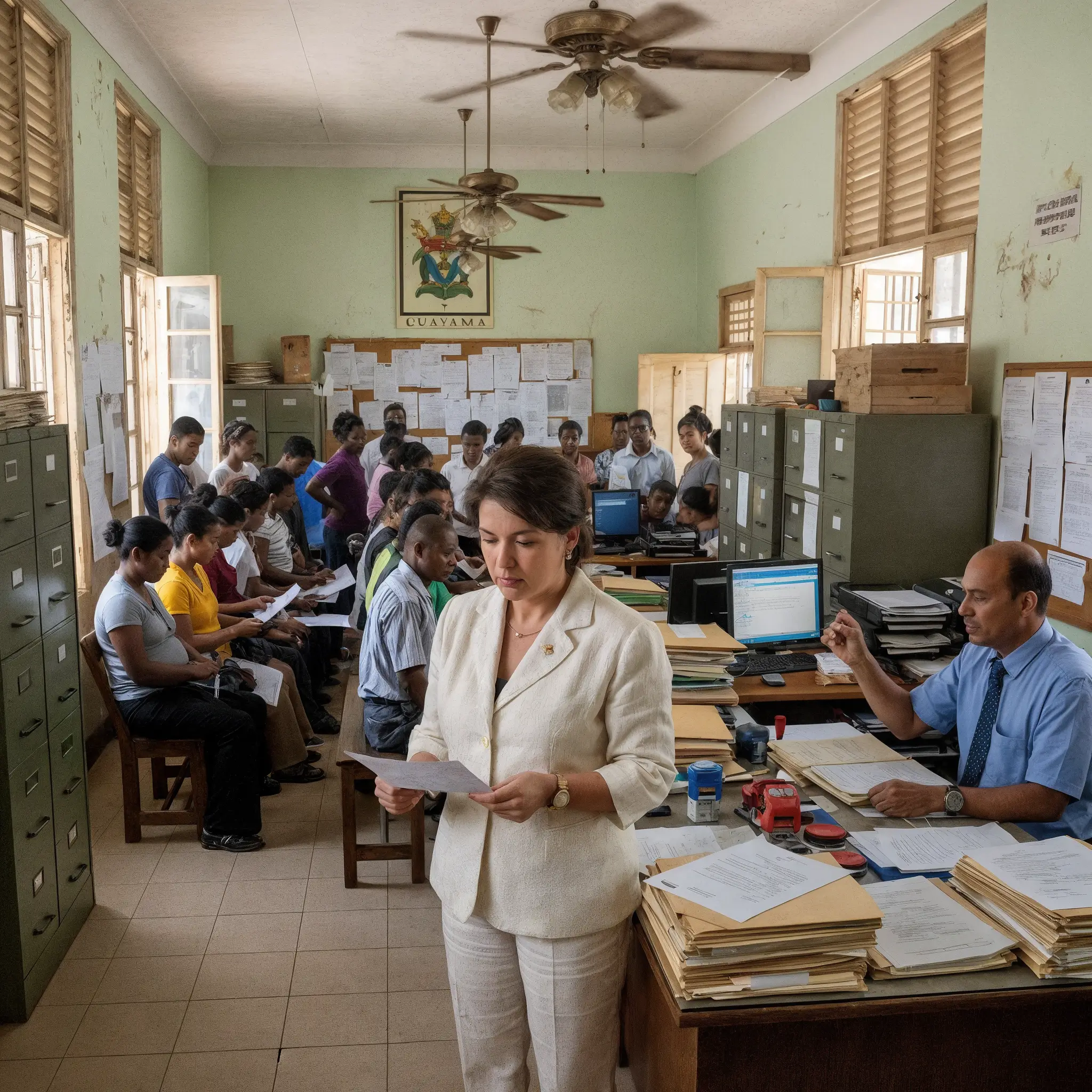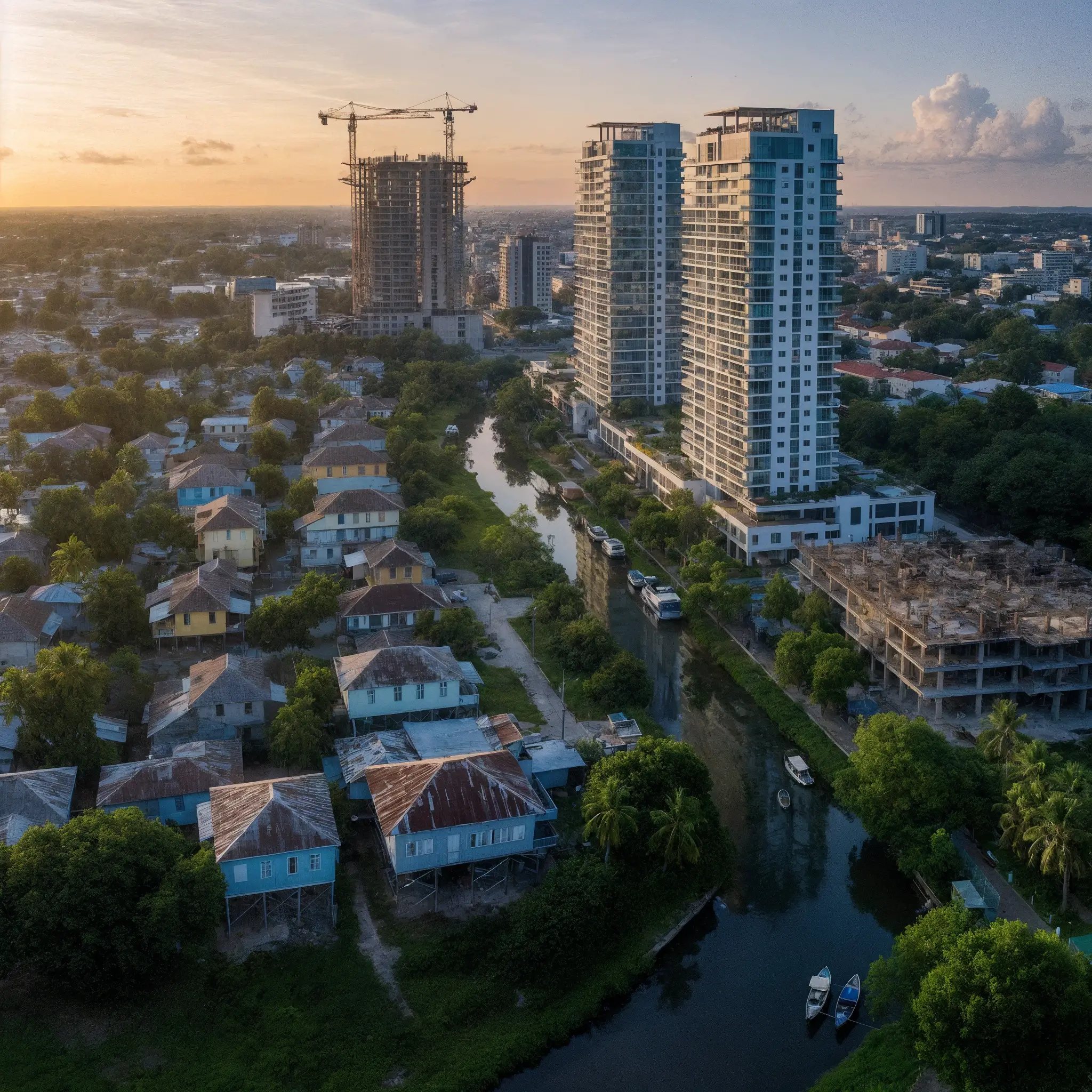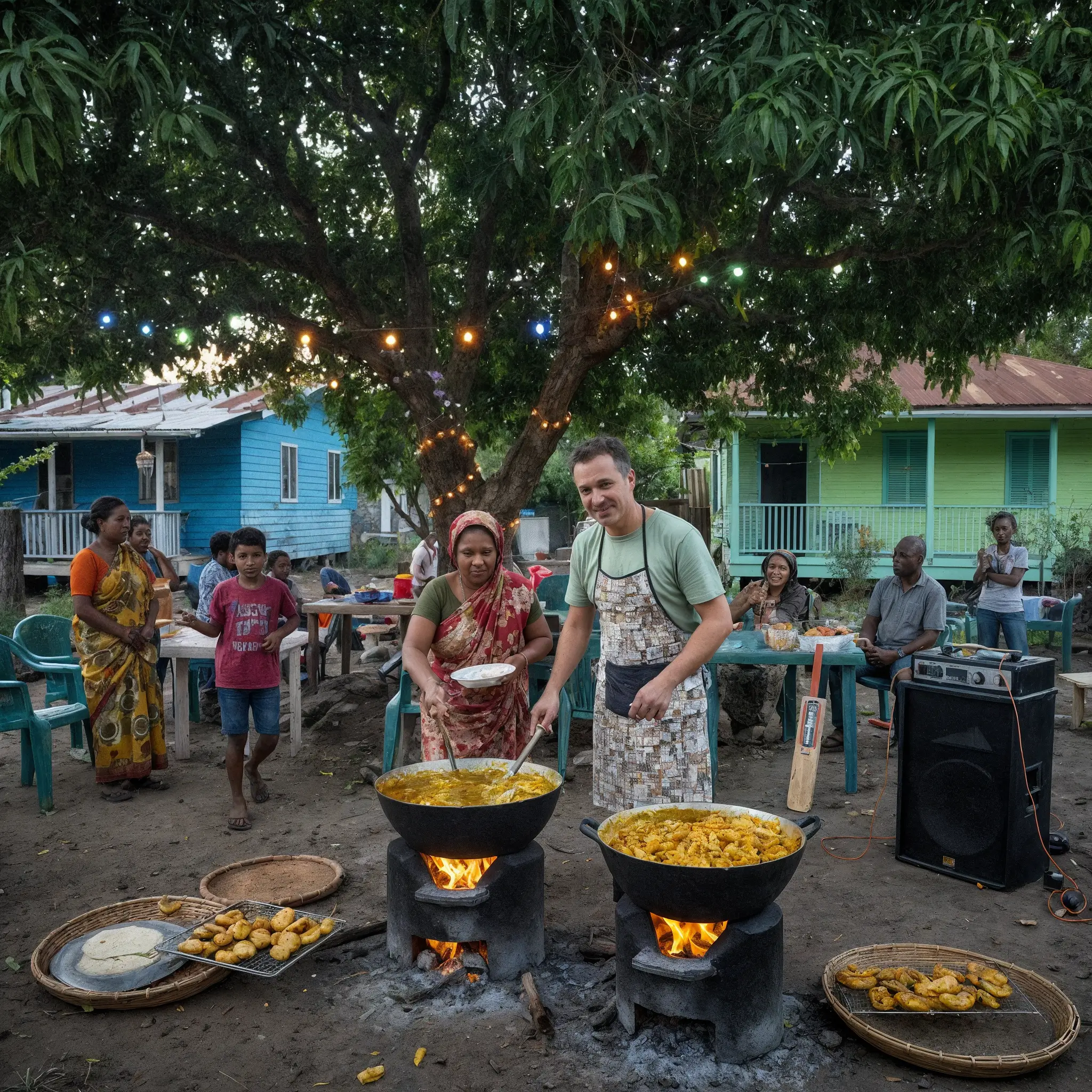Returning Home to Guyana to Live? 8 Things Guyanese People Want You to Know, but Won’t Say to Your Face
For many in the Guyanese diaspora (Guyanese living abroad), the dream of returning home has become increasingly appealing in recent years. The older folks want to retire in the warmth, the “entrepreneurs” want to start a business here to benefit from the growing economy, and some just want a new start. With the rapid transformation of Guyana’s economy and infrastructure, especially in the wake of the oil boom, more Guyanese abroad are asking: “Is now the right time to come back?”
Life at home has changed, and returning successfully requires more than what you may have thought about when you left. You need to be open to change, willingness to learn, realization that Guyana was not “left behind”, and awareness to the local realities on the ground – especially the reality of coming back to Guyanese people who have lived here all of their lives.
If you’re considering returning, here are the Top 10 things you need to know about Guyanese living at home—so you can reconnect, contribute, and thrive.
1. Spot the Comparison as Soon as You Come Off The Plane
The biggest disconnect I’ve seen between the diaspora and locals is the constant comparison of life in Guyana to life abroad. Yes, things work differently and there are many pros and cons to both sides, but locals are not just “behind” or “doing it wrong.”
What you should do is approach conversations with humility and respect. There any many things Guyana can do better, and some many things the United States or Canada can do better. There are also many things each of them can and have done worse. So ease of off the comparison right off the bat and be more open minded to learn.

2. The Cost of Living is Higher than You Remember
Returning after 10, 20, or 30 years can feel like stepping into a familiar place - but everything is slightly different. Many coming come home are surprised to find that Guyana is not as cheap as it used to be. The cost of rent, food, construction materials, and services has skyrocketed, especially in Georgetown.
Make sure you come with realistic expectations, and money. Some goods and services can cost this same here or even more than in America.
3. Opportunities are Growing—but Not Always for You
Yes, Guyana’s economy is booming, and there are new business and employment opportunities. And while most can be supportive or accommodating of oversees Guyanese, most of these opportunities are geared toward locals with relevant certifications.
A piece of advice, come first to learn and see how you can fit in. Then plan and know that it will require you to network, apply for certificates/licenses, and work in a competitive market. Don’t expect to walk into a senior role or receive contracts simply because you have international experience. Many local Guyanese also have international degrees and experience as well, myself included.
4. Bureaucracy Can Be Frustrating
Whether you're trying to register a business, apply for land, clear goods at the port, or get utilities connected, prepare for not finding out everything online and delays. Many processes are still paper-based, and navigating some spaces requires patience and persistence. There has been progress in many areas, but some still need to be made.
Know that you will not get any special favor because you are a returning Guyana or an American “Guyanese” who has a US-based passport. To navigate, you need to learn the process, build relationships, hire local experts, and avoid complaining unnecessarily.

5. Your House Lot Takes Time, and You Don’t Get Special Treatment as a Re-migrant
In relation to housing, Guyana is still one of the luckiest countries due to the government house lot programme. Not many countries have this. Every Guyanese 21+ is entitled to either a house lot or a turn key home once you have valid proof of citizenship. Now there are some caveats. First, it can take 5-8 years before you receive your title. This is due to the number of applications and available land before the actual allocation and payment process (yes have to pay for your land) can take place. Second, if you apply as a married couple, you will only be entitled to one land.
While there is a special application process for re-migrants to Guyana, returning Guyanese will also share the same caveats as local Guyanese. I have personally seen so many returning Guyanese try to benefit from this but get frustrated that the system takes so long with no distinctive date. The best advice I or any local can give you is to be patient and work with the process. Book an Air BnB or hotel that feels like your home (shout out to Grand Coastal Hotel!). If the government house lot approach doesn’t work for you in the long run, you can also try to secure land through the normal real estate process, though the prices are now vastly inflated.

6. Social Norms and Attitudes Have Evolved
Guyana is not frozen in time. Young people are more tech-savvy, more vocal, and more socially aware. Traditional views on gender, religion, and culture still exist, but modern lifestyles are emerging—especially in urban areas.
If you left Guyana years ago, don’t expect it to look or feel the same. So many Guyanese come back home and act like two sides of the same coin. On one side complaining about not enough progress being made as compared to the United States, and one the other side complaining that too much progress has been made compared to the Guyana they knew – and they miss it. Locals don’t need to hear the same old song all the time. Know that just as your new home advances with time, so does Guyana.

7. People Value Practical Help Over Pep Talks
This brings me to my next point. Many locals are tired of hearing diaspora members tell them to “work harder,” “be innovative,” or “think globally.” While well-intentioned, these messages often ignore the structural challenges some people face daily – such as poor internet, unreliable transportation, or limited capital – especially in the country areas.
Don’t get me wrong, there are so many problems that can be solved with a culture shift in mindset for many of Guyanese in working age but not employed. But if you want to help your family and friends, focus on solutions you are willing to be a part of and not lectures.
8. We Are Watching to See if You’re Really Committed
Many Guyanese living at home have seen waves of diaspora members try to return – some build a life in both countries and shuffle between, others to try it out for a month or two and then go back “home”, and some actually move back permanently as was intended. This has created a growing skepticism toward those who parachute in, criticise the system, and then leave when things get hard.
If you return, leave superiority at the door and understand that not only are you coming home, but you are coming into a new life. Just as how you would plan for a move between the US and Canada, plan the same for Guyana. Invest in relationships, show that you’re here for the long haul, and contribute meaningfully – whether through business, employment volunteering, or simply just showing up.
So, the questions of “Do I return home to Guyana?”, “Is now the right time to come back?”, “What will my life look like?” can only be truly answered by you if you are honest with yourself on the above points.
The short answer is that it is possible. People have done it. It comes with excitement, risk, nostalgia, and a lot of adjustment (hopefully this article helps you to understand some of those).
The most successful returnees are those who come not just to take advantage of what Guyana has to offer, but to build with those already here. They listen, learn, engage with humility, and find their space and purpose. If you're ready to return, come prepared – not just with money or big ideas, but with an open mind and a willingness to be part of the journey.
Disclaimer: The views, experiences, and opinions expressed in this blog post are solely those of the author and do not necessarily represent the official position of Grand Coastal Hotel. This content is provided for general informational and entertainment purposes only. Travel information, cultural insights, dining experiences, and lifestyle recommendations shared here are based on personal experiences and may vary for each visitor. While we strive to provide accurate and up-to-date information, travel conditions, restaurant offerings, cultural events, and hotel services may change over time. Any reliance you place on the information provided is at your own discretion. Grand Coastal Hotel does not assume liability for any changes in travel conditions, personal experiences, or outcomes based on this blog's content. We recommend verifying current travel requirements, making reservations, and confirming details directly with relevant service providers before making any travel arrangements.













